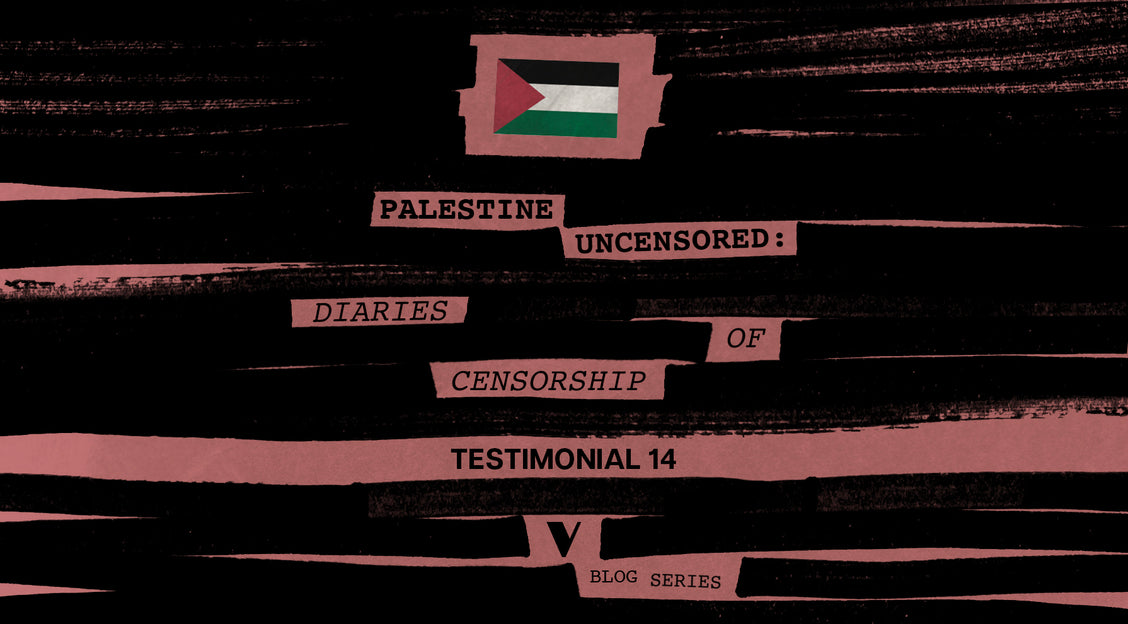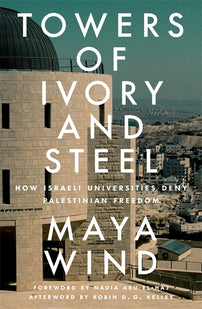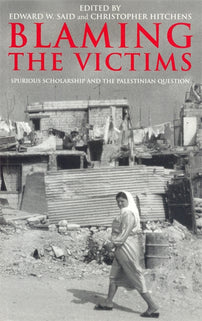Testimonial 14: Germany can censor its scholars, but it cannot hide its complicity
Germany's repression and censorship of Palestinian solidarity has been especially brutal. In testimonial 14, Thamil V. Ananthavinayagan's describes how his chapter for a collection on settler colonialism was rejected for its discussion of Germany's culpability in the ongoing genocide against Palestinians.

For a long time I thought being censored is a matter to be ashamed about, a mark of public disgrace. It isn’t, it is rather a badge of honour.
Writing the following lines as a person of a non-white background is not easy. I write these lines as a person whose parents fled their paradise motherland due to political persecution and came to Germany. I grew up as a child of refugees. The story of my people, the Tamils, is similar to that of the Palestinians and it is because of that I empathise with their suffering. While Germany is my country of birth, it is now that I feel, more than ever before, alienated from that country which I had once assumed to be my “Vaterland“, i.e. father country.
Why do I feel this way, you may ask. In the summer of 2023 I was invited to submit a chapter to an edited book collection by an NGO in Berlin. To make matters worse, this association is (so they say) committed to the critical examination of the history and present of colonialism and racism in Germany. The book was supposed to be an assembly of critical legal scholars working in Germany to write on decolonial jurisprudence and practice in Germany. This book is – so I thought – an overdue academic discussion of Germany’s colonial history, its racialised laws and legalised racial bias both in its past and today. I submitted, against this backdrop, a chapter on Germany’s colonial history in Namibia and how Germany had addressed the genocide it committed on the Ovaherero and Nama people within the international legal arena. I discussed Germany’s hegemonic role in the international system and the manipulation of law to assume responsibility. Notwithstanding this, I built the bridge and discussed Germany’s next genocide, the Holocaust, only then to usher in the discussion of the current genocide on the Palestinians and Germany’s contribution. After the submission of my chapter, concerns were raised by association’s board in early-November 2023 that I was nourishing anti-Semitic hostility and questioned Israel’s right to exist. As this association relies on public funds to run its daily operations, concerns were also raised that future funding would be in jeopardy if the my chapter was published. Other colleagues, who became aware of the censorship, raised the issue with the association and asked, how the book project would, inter alia, address the question of Palestine in this book. The overarching question remained unanswered, yet the association levied a public “character assassination“ against me in their reply to my colleagues. Several colleagues withdrew their chapters in consequence from the book.
The association considered many of the lines that I wrote for that particular book to be problematic, but one which led to the allegation of anti-Semitism is the following, as this amplified by the association in the said email:
Against this background, it cannot be ignored that Germany's Holocaust guilt became the fate of Palestinians. […] The expulsions, wars, occupation, arrests, embargoes, unemployment, settler colonialism, everyday humiliations – all of this is also the result of German guilt. […] The suffering of the Palestinians is a colonial trauma and they have become collateral damage of the Germans' historical guilt - and they, the Palestinians, are the victims of the maintenance of Western imperialism in the region. […]: it is a revelation of imperialism.
Is Germany trying to hide its own complicity in the genesis of an apartheid state? Are decolonial allies and associations, which need public money, steering away from the Palestine discourse for the sake of their own survival? Is public funding a means to create favourable conditions of hegemonic discourse which foster the “Staatsräson“ (i.e.: reason of state)? The suffering of others had been displaced, as it suited the Western and in particular German hegemony. The talk of “Staatsräson” comforts Germans over their Holocaust guilt and enables the German catharsis. My academic contribution, however, had aimed to shed light on the German guilt in Namibia where the first genocide of the 20th century was perpetrated, how it transgressed into the Holocaust, only then to discuss Germany’s role in the Palestinian genocide and its use of international legal hegemony to protect Israel.
None of these truths can be told in Germany. The liberal democracy with its liberal academic freedom doctrine is a farce – it only applies to those who align with the hegemonic white academic system. Meanwhile, Germany cracks down on Palestinian demonstrations, intensifies deportations of pro-Palestinian asylum seekers, and has moved closer to adopting policies for a compulsory oath on Israel for future naturalised German citizens. Germany transfers military aid to Israel, outmatched only by the USA. Germany is the guarantor of Israel’s white supremacy which has allowed the expulsion of Palestinians. A. Sivanandan held once: 'We are here because you were there.' To paraphrase him: Palestinians are everywhere because you are there.
Amidst all this: the academic system in Germany aids and abets a narrative which favours the civilisational progress of imperialism, while neglecting and silencing the voice of the oppressed. The brilliant Edward Said enunciated once: 'Imperialism, of course, cannot be blamed on science, but what needs to be seen is the relative ease with which science could be deformed into a rationalization for imperial domination.'
Germany and its academy is of a particular character: inaccessible for people from underprivileged and non-white backgrounds, maintaining an elite system which allows the elite climbing the ladders in this racialised environment. To be part of this academic Olympus, it is necessary to adopt the views of the superior. The adoption of their 'civilising' language, the submission to their sense of superiority and the elimination of any sort of critical thoughts are the only means of academic survival.
However, as my late father said to me: 'As long as the Palestinians are not free, we Tamils will remain prisoners of colonial history.'
Resistance, always.
If you have a story to share, please send it to pdiaries@verso.co.uk. We are publishing testimonies from all over the world. To see the full collection of testimonials, check out the Palestine Uncensored series' main page.
← Read Testimonial 13 in our Palestine Uncensored series
Read Testimonial 15 in our Palestine Uncensored series →
[book-strip index="1"]


